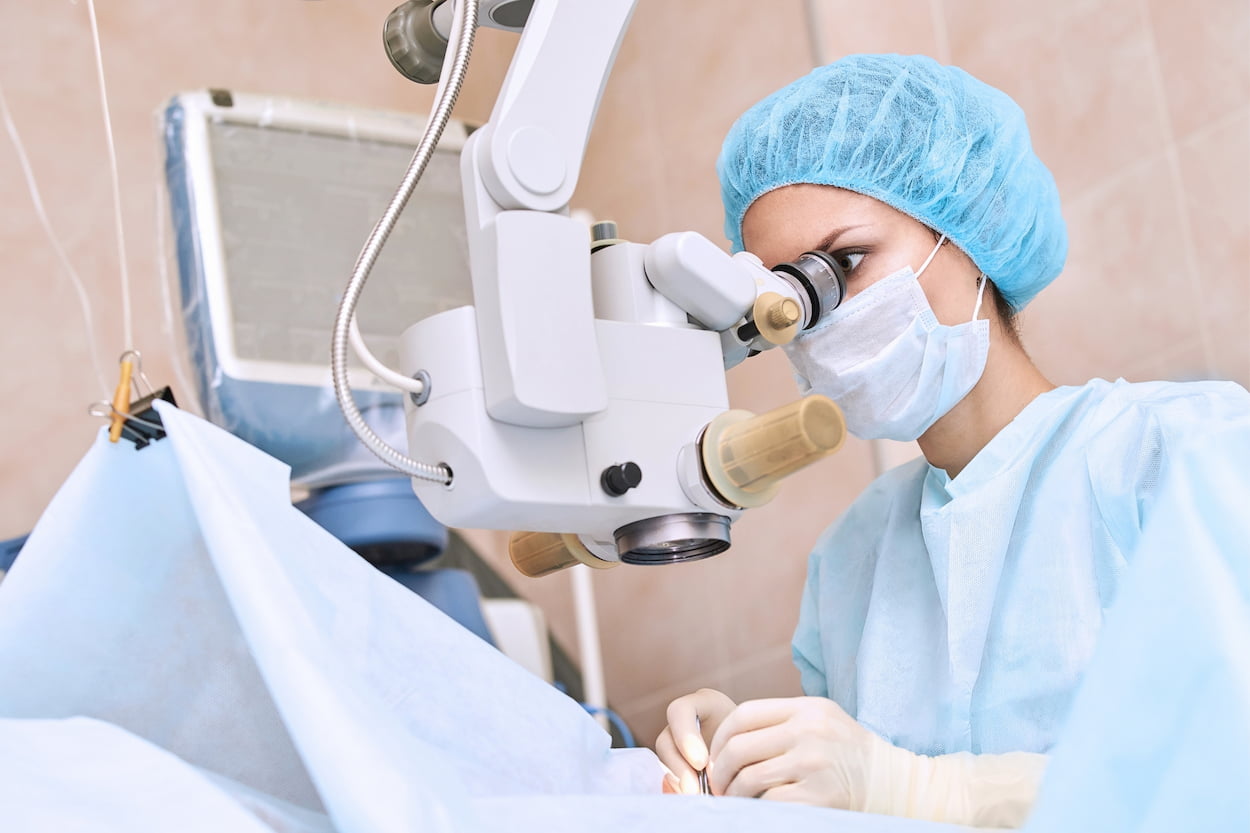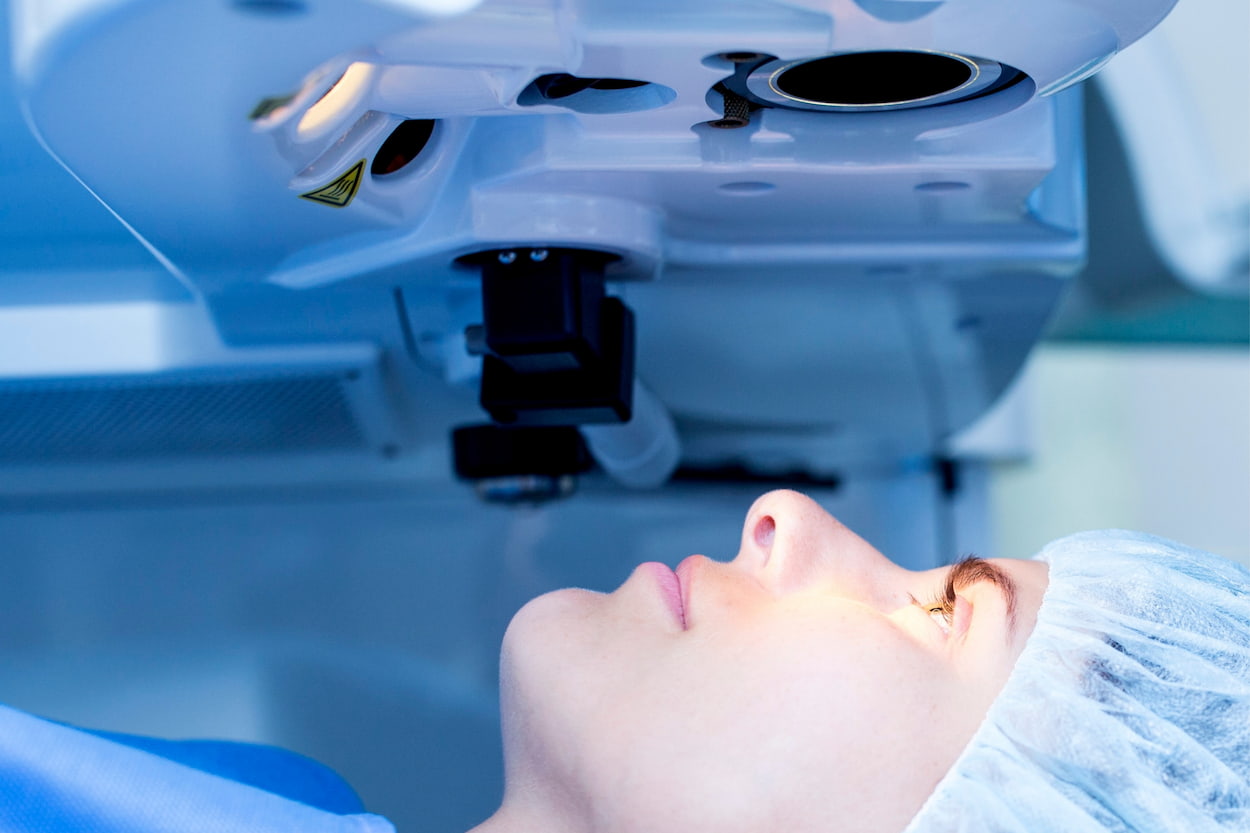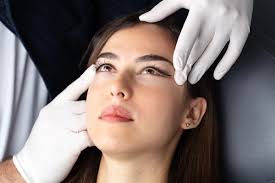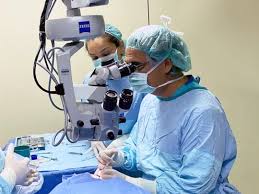
Navigating the Options: Choosing Between SBK and LASIK
The terms "SBK" and "LASIK" are probably already familiar to you if you've been doing research about getting laser eye surgery to improve your eyesight. Both operations are intended to improve your eyesight; however, there are significant distinctions between them that may make one of the procedures a preferable choice for you over the other. The following information will assist you in navigating the available options and making a decision between LASIK and SBK.
What is SBK?
A form of laser eye surgery known as Sub-Keratomileusis, Bowman's also known simply as SBK, is frequently seen as the next logical step after LASIK. When performing SBK, the surgeon creates a flap in the cornea using a femtosecond laser, which is significantly thinner than the flap that is created when performing regular LASIK. This makes it possible to provide a treatment that is more accurate and may be tailored to the individual's needs in order to get better visual outcomes with fewer adverse effects.
What is LASIK?
Laser-Assisted in Situ Keratomileusis, also known as LASIK, has been the most common type of laser eye surgery for many years. Its full name is Laser-Assisted in Situ Keratomileusis. During performing LASIK, the surgeon makes a flap in the cornea by cutting it with a microkeratome or a femtosecond laser. After that, a laser is used to restructure the cornea behind the flap in order to correct any issues with the patient's vision.

What Are the Differences Between SBK And LASIK?
The thickness of the corneal flap is the primary distinction between the two procedures that make up LASIK and SBK. The flap created by SBK is noticeably less thick than the flap created by LASIK, which enables the treatment to be more precise and adaptable. This can result in superior visual outcomes and less side effects such as dry eyes, glare, and halos than would otherwise be the case.
The sort of laser that is employed is still another important distinction. While lasik can use either a femtosecond or a microkeratome laser, SBK only employs the usage of a femtosecond laser. Because of its increased accuracy and adaptability, the femtosecond laser is quickly becoming the tool of choice for a growing number of medical professionals.
In conclusion, the recovery period following SBK tends to be shorter than that following LASIK. The corneal flap that is used in the procedure is now much thinner, which allows for more precise treatment, which in turn allows the eye to heal more quickly and with fewer adverse effects.
How Do You Choose Between SBK and LASIK?
Choosing between SBK and LASIK depends on your individual needs and preferences. It's important to have a thorough consultation with an experienced surgeon to discuss your options and determine which procedure is right for you.
If you have thin corneas, a history of dry eyes, or other factors that may increase the risk of side effects, sbk may be a better option for you. However, if you have a mild to moderate prescription, LASIK may be a more cost-effective and viable option.
Ultimately, the decision to undergo SBK or LASIK should be based on your individual needs and the expertise of your surgeon. With the right information and guidance, you can make an informed decision and achieve the clear vision you deserve.
Is SBK Better than LASIK?
Whether SBK is better than LASIK depends on individual needs and preferences. While SBK may be a better option for individuals with thin corneas or a history of dry eyes, LASIK may be more cost-effective and viable for those with a mild to moderate prescription. It's important to have a thorough consultation with an experienced surgeon to determine which procedure is right for you.
Is There a Better Option than LASIK?
There are several options available for laser eye surgery, including SBK, LASIK, and prk surgery . The best option for you will depend on your individual needs and preferences. It's important to have a thorough consultation with an experienced surgeon to determine which procedure is right for you.
Is SBK Better than PRK?
Whether SBK is better than PRK depends on individual needs and preferences. While SBK may have a shorter recovery time and fewer side effects, PRK may be a better option for individuals with thin corneas or a history of dry eyes. It's important to have a thorough consultation with an experienced surgeon to determine which procedure is right for you.
Should I Choose PRK or LASIK?
Whether you should choose PRK or LASIK depends on individual needs and preferences. While LASIK may have a shorter recovery time and fewer side effects, PRK may be a better option for individuals with thin corneas or a history of dry eyes. It's important to have a thorough consultation with an experienced surgeon to determine which procedure is right for you.
Healthy Türkiye Notes
In conclusion, choosing between SBK and LASIK requires careful consideration of individual needs and preferences. While both procedures aim to improve visual outcomes and reduce the need for glasses or contact lenses, the differences between them can make one a better option for some individuals than others. It's important to have a thorough consultation with an experienced surgeon to evaluate your candidacy for each procedure and determine which one is the best fit for you. Ultimately, with the right information and guidance, you can make an informed decision and achieve the clear vision you deserve.
Additionally, advancements in technology have led to the development of new and innovative laser eye surgery options, such as SMILE and LASEK. These procedures may also be suitable for some individuals and offer unique benefits and features that differ from SBK and LASIK. Therefore, it's crucial to stay informed and up-to-date on the latest advancements and options available for laser eye surgery. Ultimately, the decision to undergo laser eye surgery is a personal one, and should be made after careful consideration of all factors involved. With the guidance of a skilled surgeon and a commitment to proper aftercare, laser eye surgery can be a life-changing experience that enhances your quality of life and overall well-being.




